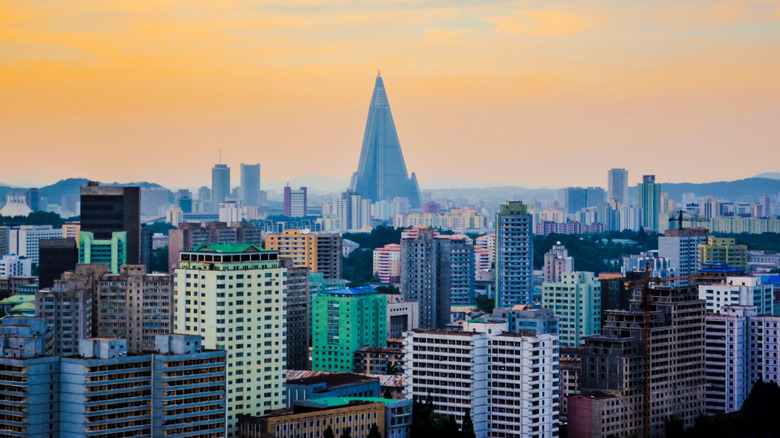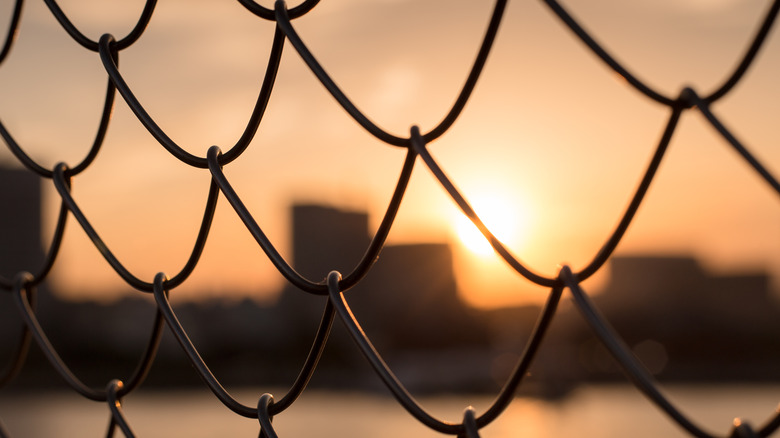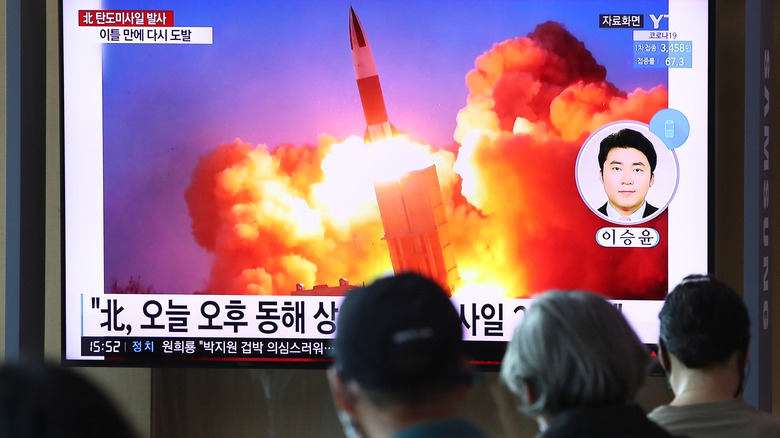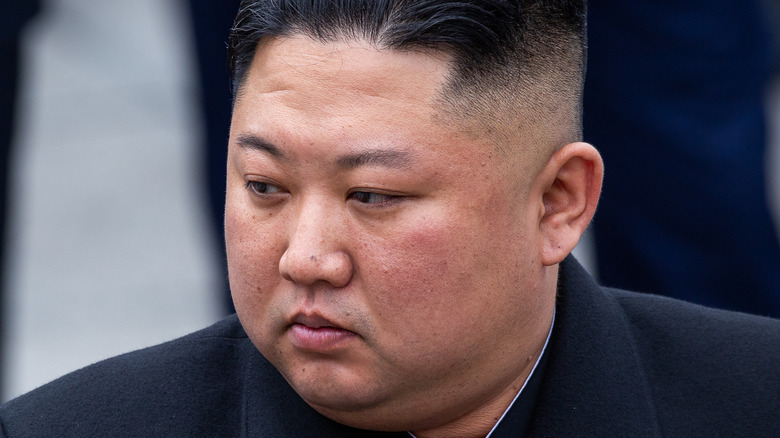Why Some Defectors Return To North Korea By Choice
Many people imagine North Korea to be hell on Earth. Daily life for the subjugated working class seems unbelievably harsh and oppressive with censorship and tyranny around every corner in the pariah state. So why then, would anyone who got out want to return?
Since the Ministry of Unification began keeping tabs in 1998, by 2022 an estimated 33,800 North Koreans have risked execution, life imprisonment, or detention in labor camps in order to cross the Southern border in pursuit of liberation from poverty and persecution. Out of that total number, only 30 have been documented heading back to the North to live once more under the world's only necrocracy (per CNN). Finding that South Korea was far from the haven they expected, these lost souls ventured back home despite knowing the risks of death, torture, or imprisonment for themselves and future generations of their families.
This is certainly bizarre, given that South Korea provides accommodation to all defectors, as well as access to education, benefits, and even healthcare (via CNN). What then, could be so horrible about living in the South, that individuals are willing to throw themselves once more at the mercy of fate to return home?
Is The Grass Always Greener?
Defectors crossing the border from north to south are exceptionally rare due to the strongly defended Demilitarized Zone. After all, it is this 155-mile-long stretch of manned guard stations, landmines, and barbed wire that is blocking their path (via Deutsche Welle). Many people who flee North Korea instead travel through China, Laos, and Thailand, often with the "help" of brokers or smugglers. An additional risk is that they can be apprehended and returned at any time when they will face certain death or worse.
According to many defectors residing in South Korea, the difficulties of life are far from done once they've settled in the South. "North Korean defectors are eternally foreigners in this country, categorized as second-class citizens," says Kim Ryon-Hui, a defector attempting to re-enter North Korea lawfully. "North Korean defectors are treated like cigarette ashes thrown on the streets," she continued (via The Guardian).
Despite the strong wording, many defectors describe prejudice from their southern co-workers or strangers on the street (via Chosun Media). Many claim that their North Korean accents, for example, make them stand out, leading to mistrust and occasional abuse from their neighbors or strangers (per Deutsche Welle).
South Korea's cultural evolution since the outbreak of the Korean War would astound North Korean residents if they could see it. Anyone would find the adjustment from a resilient, possibly rural monoculture to a wider cosmopolitan sandbox with pervasive American and European commercial influences overwhelming.
Isolation From Fellow Koreans
North Koreans frequently express a severe sense of loneliness and isolation as a result of residing in South Korea. Many defectors believe they have fallen down the social ladder since they can only earn less money through less desirable employment (via CNN). Despite having higher unemployment rates, many North Koreans get government subsidies from South Korea after completing a mandatory 12-week deprogramming course in which they must relinquish their North Korean citizenship (per CNN).
However, many people claim that these benefits are insufficient to support them. Older escapees, for example, do not qualify for the same pensions as South Koreans who have worked their entire lives, so they face spending their autumn years in poverty (via The Conversation). One particularly grim tale describes a mother and her child who died of starvation after living in abject poverty in South Korea.
Lastly, some North Koreans describe feeling isolated from other defectors since they are afraid of arousing suspicion from South Korean intelligence organizations (via The Guardian). Given the current nuclear arms race between the two countries, it's unsurprising that many unsympathetic South Koreans distrust defectors.
The Devil You Know
It's heartbreaking to learn that those who have risked life and limb to flee poverty, hunger, and authoritarianism have endured so much misery, only to encounter a different flavor of hostility south of the D.M.Z. For a small number of North Koreans stranded in isolation, it appears that they'd rather deal with the devil they know than the devil they don't.
Many lonely North Koreans frequently miss their relatives too much to stay. Some defectors eventually return home after being emotionally pressured by family members still in North Korea, some of whom have succumbed to North Korean secret police coercion (via The Guardian). However, what cruel fate awaits them once they return to North Korea?
It is prohibited to re-enter North Korea without the clearance of the Unification Ministry (via The Washington Post). Those who attempt to return to North Korea face a maximum three-year prison sentence from the South Korean government. Although, that should be the least of their concerns.
Despite the odds being stacked against them, some North Koreans have managed to reconcile with their loved ones and get them out of North Korea too (via The Washington Post). However, If North Koreans are busted on their re-entry to the country after defection, they face death via public execution, life imprisonment, or the incarceration of their families for generations (via Human Rights Watch).
However, given North Korea's secrecy, tales of what happens to defectors who are discovered are scarce. Considering how draconian legal punishments can be, and given Kim-Jong Un's vast network of spies, we can suppose the consequences for individuals who return to North Korea aren't pretty.



